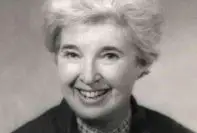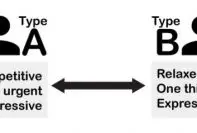It’s a concept developed by the psychologist Carl Rogers. Rogers believed that complete, indefinite acceptance and positive regard was the key to any successful therapy, which he termed as Unconditional Positive Regard.
According to Rogers,
“Unconditional positive regard means that when the therapist is experiencing a positive, acceptant attitude toward whatever the client is at that moment, therapeutic movement or change is more likely. It involves the therapist’s willingness for the client to be whatever feeling is going on at that moment – confusion, resentment, fear, anger, courage, love, or pride…The therapist prizes the client in a total rather than a conditional way.”
A more familiar term that is much easier to understand would be Unconditional Love. The definition of unconditional love is well known in the pop culture. Unconditional Positive Regard refers to something similar, but it doesn’t require love or affection and is only focused on accepting others as they are without judgment or evaluation.
Rather than an action towards others, Unconditional Positive Regard is more of a feeling or mindset. It’s one of the key characteristics of the psychological therapy developed by Rogers. Those that don’t fall under Unconditional Positive Regard accounts for Conditional Positive Regard.
Applications of Unconditional Positive Regard
Unconditional positive regard allows the client to share thoughts, feelings, and actions with others in a highly comfortable environment without any fear. The client is not judged in any way by the therapist, allowing the therapist to open up more freely. Even if the therapist does respond to the client’s behavior, he does so by expressing his feelings towards the actions rather than making comments on the actions itself. This characteristic of Client Centered Therapy encourages the client to be free and make mistakes. Because they do not have to fear being judged, they are more open and thus their self-healing process is faster.
Unconditional Positive Regard isn’t necessarily limited to be used inside closed doors between the client and the therapist. It should, in fact, be encouraged in the daily environment too, especially on a daily basis. Rogers has even claimed that Unconditional Positive Regard is the best way to nurture a child, whether at school, home or workplace.
For Example: A child is provided with utmost unconditional positive regard at both home and school. The child will not be afraid to try out any scope, which enhances the child’s creativity and makes him full of confidence. This will lead to growth of a confident adult, rather than someone who is afraid to speak his mind, which would have more likely been the case had the positive regards been conditional.
Rogers’ theory was that
Human beings have an innate urge towards socially constructive behavior which is always present and always functioning at some level.
Also,
Each person had a need for self-determination; and the more a person’s need for self-determination is respected, the more likely their innate urge to be socially constructive will take hold.
In simple words,
By allowing an individual to be the best they can be, they can truly be the best they can be.
Common Misconception
It’s more of an attitude rather than having to decide whether or not to like someone or feel empathy for them. For instance, someone might question if they need to show UPR with a morally wrong person, say a criminal. But, to show UPR you don’t necessarily have to approve or even like him, what matters is your attitude towards the person.
To successfully carry out UPR, you need to believe in the theory. There is no short cut or alternative way. You can only practice UPR if you believe that a person can be the best, and he doesn’t need to be passed judgments on his actions.




